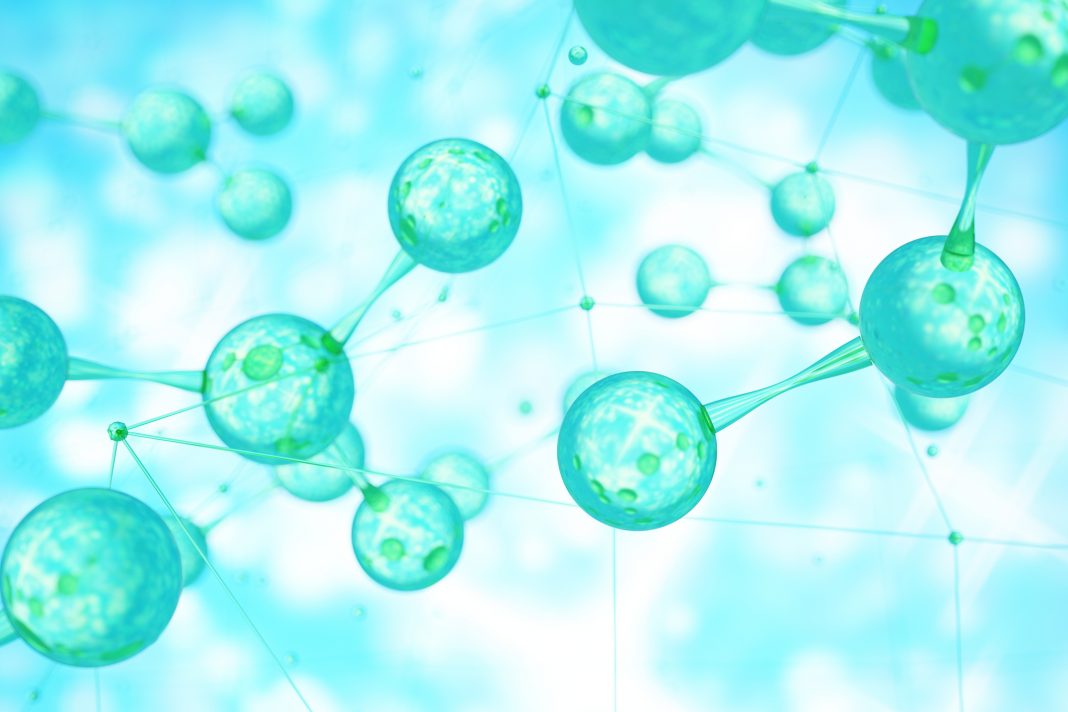The Research Experiences for Undergraduates (REU) programme in the Department of Chemistry at Michigan State University was created to inform students majoring in chemistry, biochemistry and chemical engineering about key societal sustainability challenges and to provide graduate-level independent research experiences that address aspects of these challenges
The REU programme exposes students to how sustainable practices are impacting research and technology development in chemistry and chemical engineering. The 10-week summer programme introduces students, many of whom are engaging in graduate-level research for the first time, to the multiple steps in the research process: (i) formulate research questions and a hypothesis, (ii) create a research design, (iii) execute an experimental plan, (iv) data analysis and interpretation, and (v) report out on the findings and their significance.
In the US, the National Science Foundation (NSF) funds many research opportunities for undergraduate students through its REU Sites programme. Our programme is entering its 10th year and has provided education, training and professional skills development to over 90 individuals.
The programme’s core goals are: (i) to involve undergraduate students in graduate-level research projects geared toward addressing green and sustainable challenges through the fields of chemistry and engineering; (ii) to provide a positive mentoring experience and to educate the student participants on what constitutes an appropriate and effective mentoring relationship; (iii) to generate interest in and better prepare undergraduate students for success in graduate school; (iv) to produce a research toolbox (lab safety, notebook, basic statistics, communication, teamwork) for the students; and (v) to significantly enhance their professional development, confidence and self-esteem.
There are three pillars essential for achieving excellence in research and creative activity: (i) training in proper research and scholarship practices; (ii) effective mentoring; and (iii) ethical awareness and understanding of one’s responsibilities for proper research conduct. Time is spent during the REU programme guiding the student participants about all three pillars.
In previous articles, two of the pillars were discussed: (i) effective mentoring and aligning mentor-mentee relationships (1) and (ii) education in responsible and ethical conduct of research (RECR) to ensure students are aware of their ethical responsibilities as a scientific researcher and know about best practices for research integrity (2). In this article, the value of independent research experience and the associated professional skills development is discussed.

Independent research experience is critical for any scientific discipline
Research experience is critically important for a chemistry (or any other scientific discipline) student’s development as it is in the laboratory, or at the computer in the case of computational chemistry, where the student learns the science and connects theoretical concepts with the practical aspects of experimentation, observation and interpretation. Undergraduate research is a transformative educational experience that fosters intellectual growth, skill development and personal enrichment, laying the foundation for success both during and beyond college. A substantial body of literature provides evidence that summer research experiences promote the development of critical research and communication skills and help clarify career paths (3-5). Research has shown that research experience is the primary pre-doctorate characteristic associated with the successful defence of a doctoral dissertation (6). The effectiveness of the research experience, however, can be lessened by poor supervision and mentoring by an adviser and inadequate departmental support.
A quality summer research experience will introduce students to all aspects of the research process: experimentation, data analysis and interpretation, and use of the scientific literature and communicating the findings in oral and written formats. Through their actions (training, support, encouragement, mentoring), the adviser and other mentors should strive to transition the undergraduate student from being a dependent to a more independent researcher while building self-confidence along the way.
What are the benefits of independent research experience
Independent research experience benefits students on many levels in terms of their professional development (3-6). For example, independent research promotes critical thinking skills. Students learn to develop hypotheses, critically analyse information, question assumptions and develop logical arguments. Critical thinking skills are essential for academic success and employment.
Independent research experience develops problem-solving abilities. In the research process, one encounters challenges and obstacles that require creative problem-solving. Through tackling these challenges, students develop resilience, adaptability and effective problem-solving skills. All are valuable both academically and in real-world contexts.
A deeper knowledge about science
Finally, independent research experience serves to deepen student’s knowledge about the science. They gain a more comprehensive understanding of the subject that goes beyond what is covered in traditional coursework. This depth of knowledge enhances their expertise in their chosen field and prepares them for further academic pursuits or professional endeavours. Participation in undergraduate research enhances self-confidence and provides valuable experience that prepares students for graduate school or professional careers. Pursuing research demonstrates a commitment to their field of study, enhances their academic credentials and equips them with the skills and knowledge necessary for success in advanced academic or professional settings.
References
- Open Access Government 41(1): 388-389, January 2024.
- Open Access Government 40(1): 378-379, October 2023.
- Russell SH, Hancock MP, McCullough J (2007). Benefits of Undergraduate Research Experience. Science 316, 548-549.
- Lopatto D (2007). Undergraduate Research Experiences Support Science Career Decisions and Active Learning. CBE Life Sci Educ 6, 297–306.
- Ghee M, Keels M, Collins D, Neal-Spence C, Baker E (2016).Fine-Tuning Summer Research Programs to Promote Underrepresented Students’ Persistence in the STEM Pathway. CBE Life Sci Educ 15: ar28, 1–11.
- Zhuchkova S, Bekova S (2023). Building a Strong Foundation: How Pre-doctorate Experience Shapes Doctoral Student Outcomes. PLoS ONE 18(9): e0291448.

This work is licensed under Creative Commons Attribution-NonCommercial-NoDerivatives 4.0 International.


